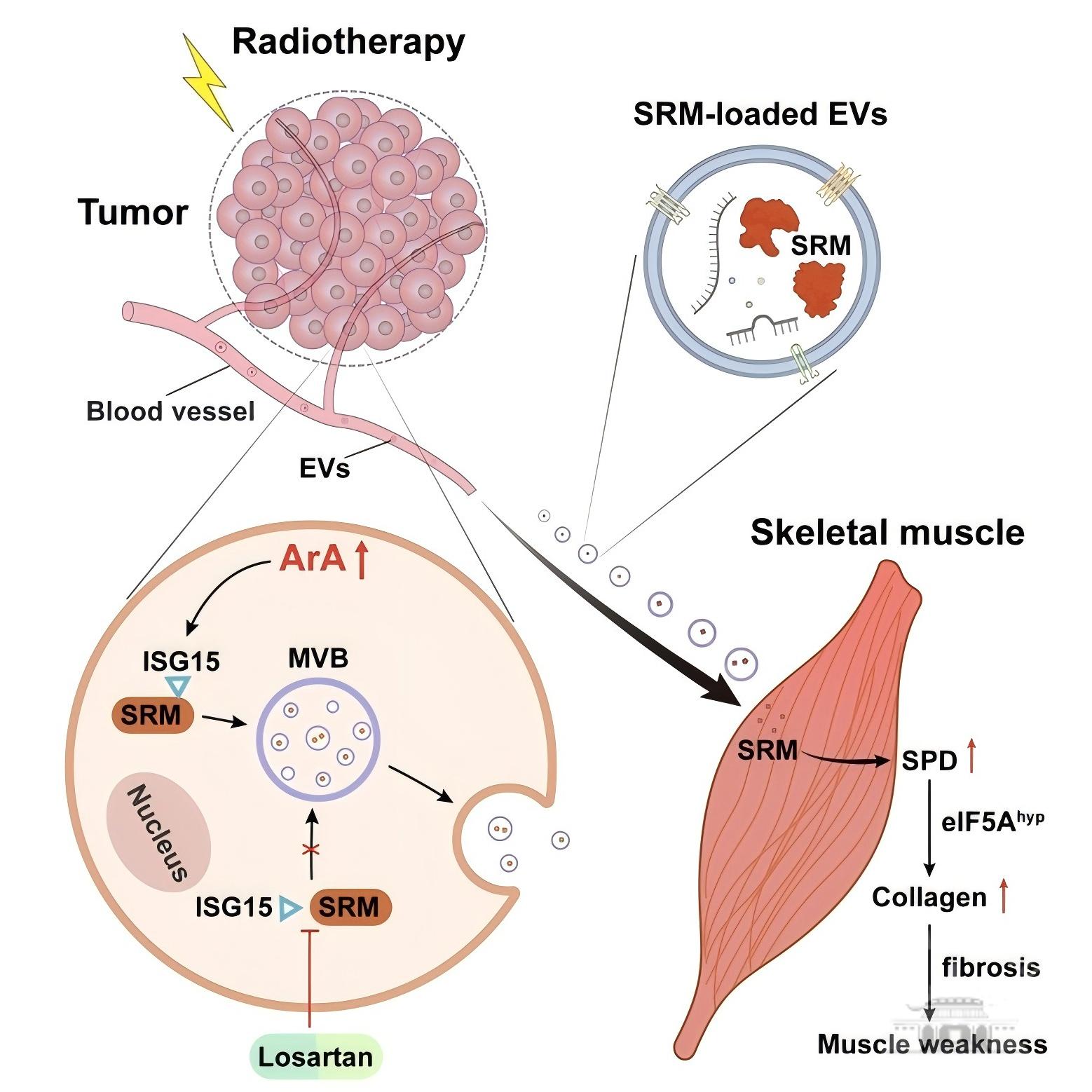On June 19, Cell Metabolism published new findings from Professor Yan Wei's team at Wuhan University's (WHU) College of Life Sciences, marking a breakthrough in understanding the metabolic side effects of tumor radiotherapy.

Radiotherapy stimulates tumors to secrete extracellular vesicles, leading to skeletal muscle weakness.
The study shows that radiotherapy activates arachidonic acid (ArA) metabolism in tumor cells, triggering the release of extracellular vesicles (sEVs) rich in spermidine synthase (SRM). These vesicles are absorbed by skeletal muscle, disrupting polyamine metabolism and leading to muscle weakness.
Researchers found that SRM promotes spermidine accumulation in muscle, driving the buildup of type I collagen fibers, which alters the tissue's mechanical properties and impairs muscle contraction. The release of SRM depends on ISGylation modification – a process enhanced by both radiotherapy and ArA exposure.
The team identified the blood pressure drug losartan as a potential intervention. By targeting tumor sites, losartan suppresses SRM ISGylation and secretion, significantly alleviating muscle dysfunction caused by radiation.
Zhang Xiaohui and Nie Zhongliang are co-first authors, with Yan Wei and Zhao Yanxia serving as corresponding authors. The findings offer promising new directions for mitigating radiotherapy-related side effects.
Link to paper: https://doi.org/10.1016/j.cmet.2025.05.013